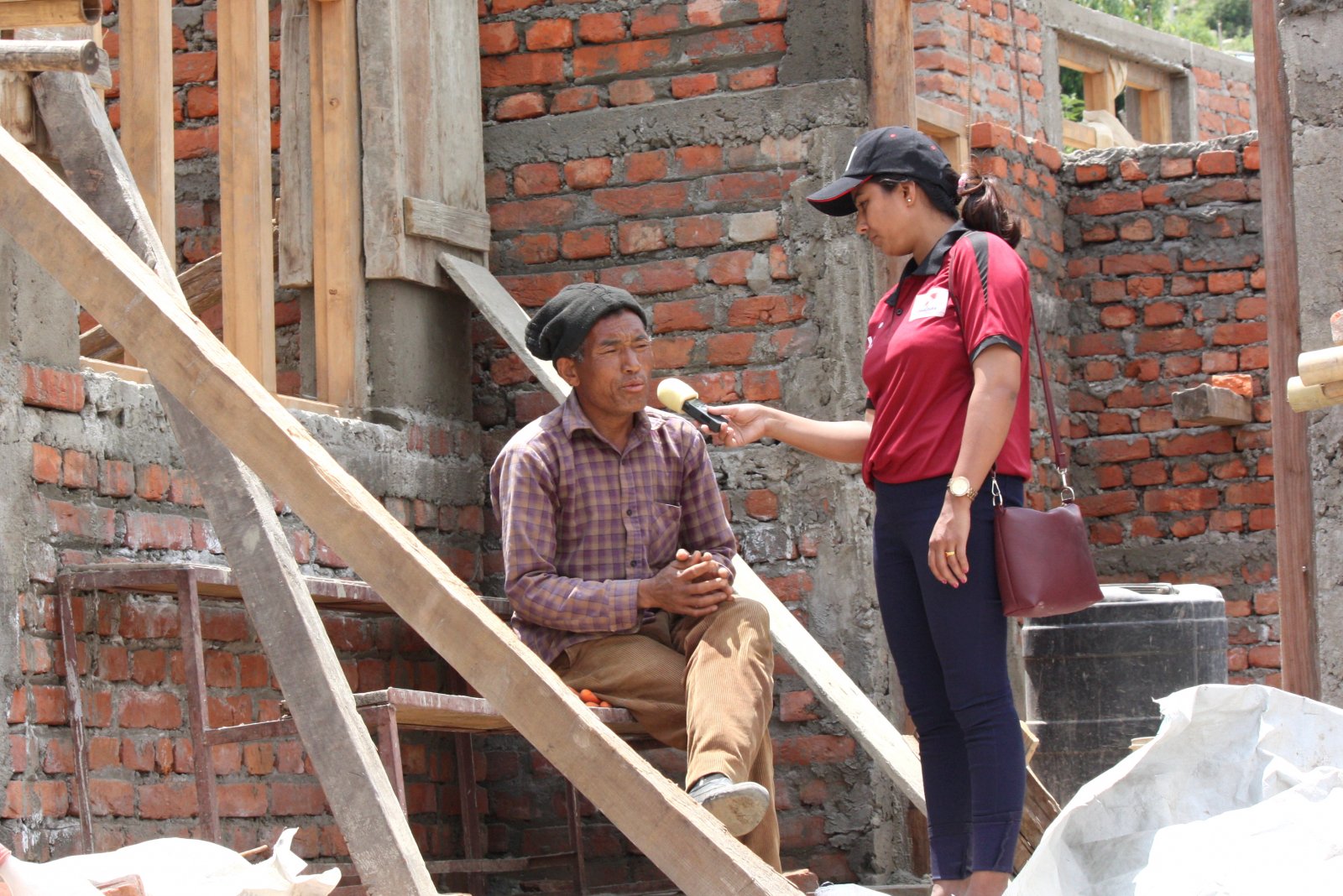
SHARE
As environmental disasters become increasingly devastating over time, and the world remains in the throes of an ongoing pandemic, experiences in crisis management globally must shape future response operations that create the foundation for long-term disaster resiliency.
On April 25, 2015, Nepal was struck by a devastating 7.8 magnitude earthquake that killed over 9,000 and injured thousands more. In mere moments, more than 600,000 structures across the country were destroyed, and impacts from the quake could be felt in neighboring countries throughout the region. Not only was the earthquake itself severe, but it also caused avalanches and landslides that destroyed entire villages near the epicenter. In the days and weeks after, the country experienced aftershocks that took additional lives and injured thousands.
The earthquake hit women and children the hardest. When the earthquake struck, many mothers ran back into their homes to protect their families. In the earthquake’s aftermath, families lost homes they had owned for generations. Without formal property rights in place and loss of agreement documents that were destroyed in the disaster, women, especially, had no proof of ownership. They were often left homeless and without food or resources. 1. NRA officials responding to citizen questions during a site visit.jpg

Despite efforts by the Nepalese government to deliver relief following the earthquake, resources were slow to reach rural and marginalized communities. Without a clear assessment process for evaluating the needs of vulnerable communities in the government’s response blueprint, overall recovery was anemic. The National Democratic Institute (NDI), through funding from the U.S. Agency for International Development to the Consortium for Elections and Political Process Strengthening (CEPPS), took several steps to support the government’s response. First, NDI worked with a group of civil society organizations to survey gender and social inclusion in the government’s post-earthquake relief and reconstruction. Following extensive surveys and focus groups, NDI found great disparities in the delivery of resources, including poor coordination and communications, the marginalization of poor victims and a lack of transparency in resource allocation. Additionally, findings pointed to an increase in violence against women and a lack of safety provisions for women in temporary shelters.
Next, NDI shared findings with the government’s central National Reconstruction Authority (NRA), in addition to the Ministry of Women, Children and Social Welfare and various other officials. NDI then worked with the NRA to train officials and support journalists in effective crisis communications. The Institute also supported the NRA’s development of a comprehensive crisis communications strategy, strengthening recovery response messaging to rural and hard-hit areas across the country. With NDI support, the NRA also organized district-level reconstruction forums and town hall meetings in earthquake-affected areas. These convenings expanded government awareness of the needs of those hardest hit by the disaster and engagement by citizens from marginalized communities in advocating for their priorities. NDI’s work with journalists and media companies also broadened transparency of recovery funds to advance responsible resource delivery.
Finally, in response to NRA’s request, NDI supported a civil society organization to conduct research into the overall impact of the reconstruction efforts on the economy. The research focused on jobs created as a result of labor needs to reconstruct homes and other buildings, along with the procurement of construction materials and supplies. The findings from this independent organization showed a significantly positive impact on the economy. They were presented at a forum in late 2019, and shared widely by the NRA through news and media outlets nationally.
NDI has also supported efforts in Nepal that address environmental impacts as a result of climate degradation. For example, in 2014, in the wake of another year of extensive flooding, NDI worked with the World Wildlife Foundation and CARE Nepal to bring legislators from flood districts together with those serving on the legislature’s Environment Protection Committee. They worked with local experts to understand the long-term environmental degradation from felling trees and riverbed overflows. These efforts led to commitments by the Nepalese government to implement environmental protections for improved forest management.4. Journalists interviewing an earthquake affected citizen.jpg

NDI’s work supporting governments in their crisis management and recovery, as exemplified by Nepal’s post-earthquake and post-flood responses, underscores the critical importance of democratic principles in advancing effective recovery, especially for those most vulnerable and impacted by crises. To mitigate the short and long-term impacts of crises on a particular society, experience shows that governments that utilize democratic best practices throughout their crisis response -- such as ensuring emergency budgets reflect the priorities and needs of hardest-hit communities; communicating with the public effectively throughout the crisis; and equipping legislative actors and civil society organizations with tools to hold the government accountable to the delivery of relief funds -- often experience more sustainable and adaptive outcomes.
Author: Frieda Arenos, Program Director, NDI Democratic Governance and Sneha Moktan, Senior Program Manager, NDI Asia Programs


